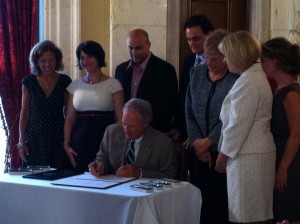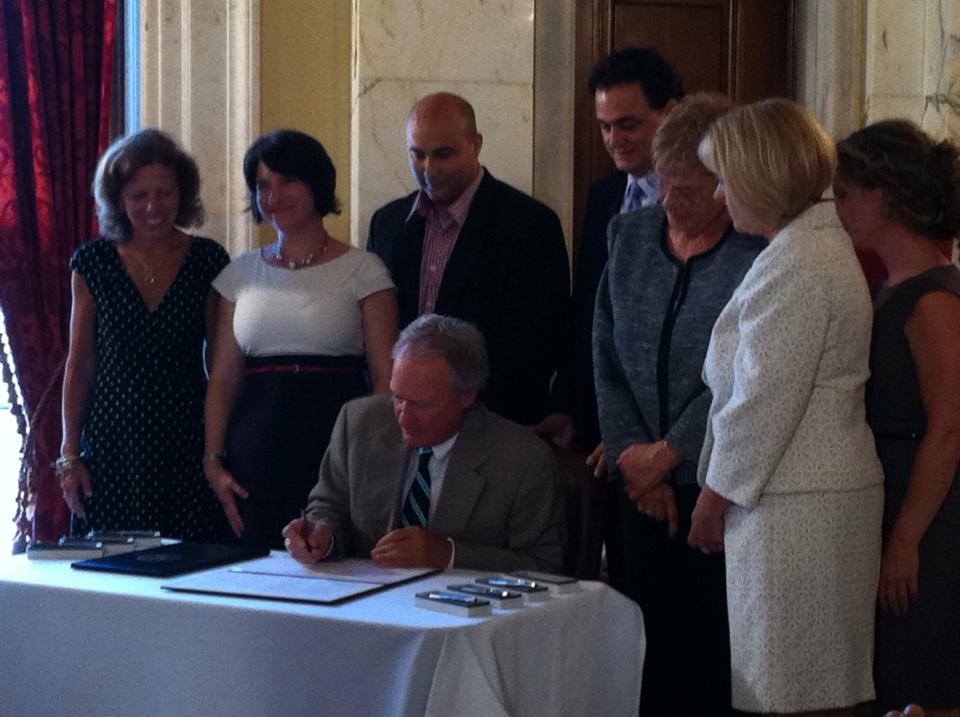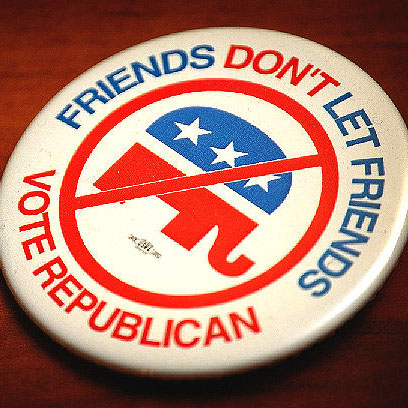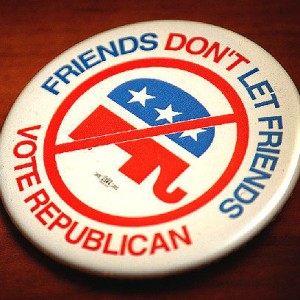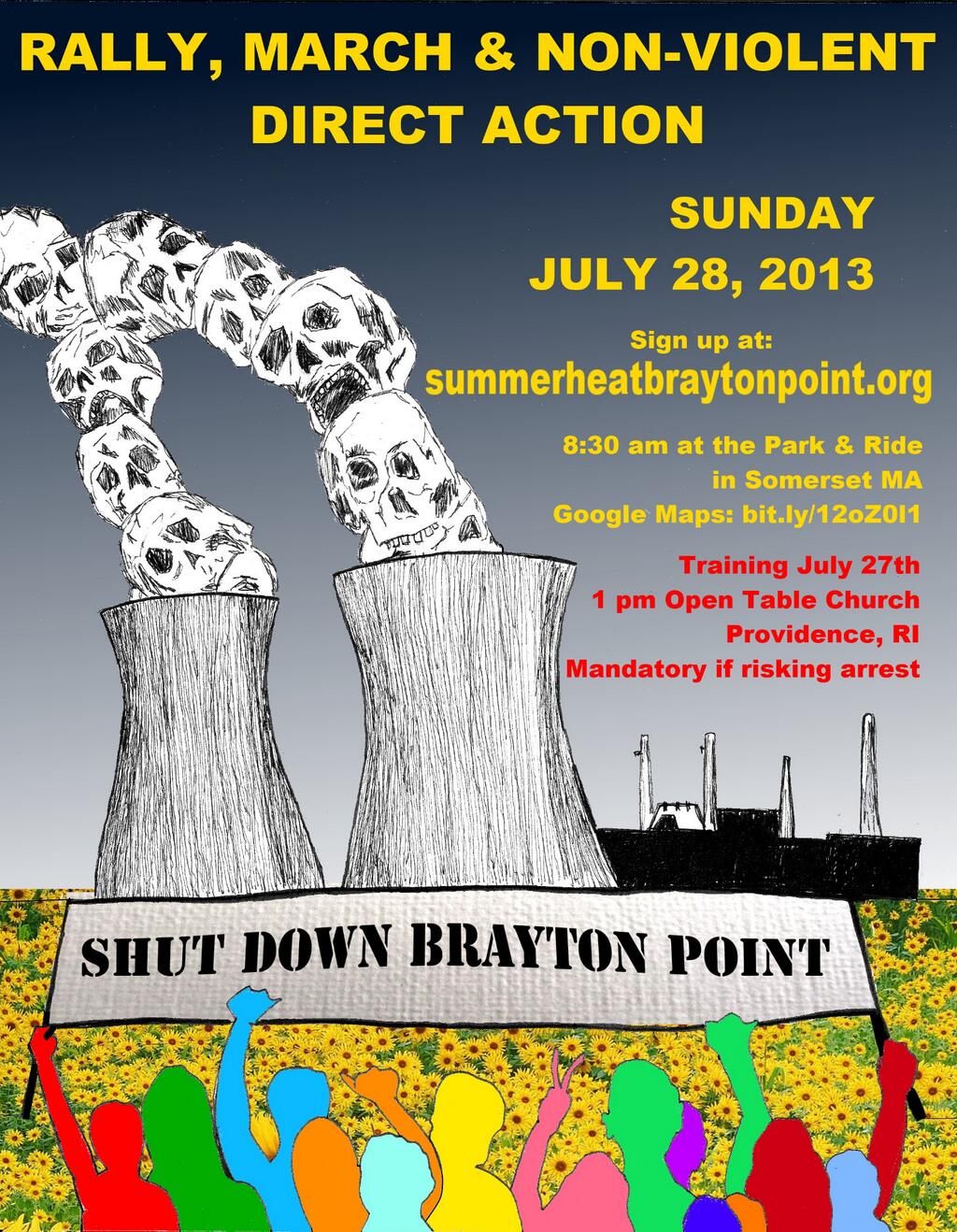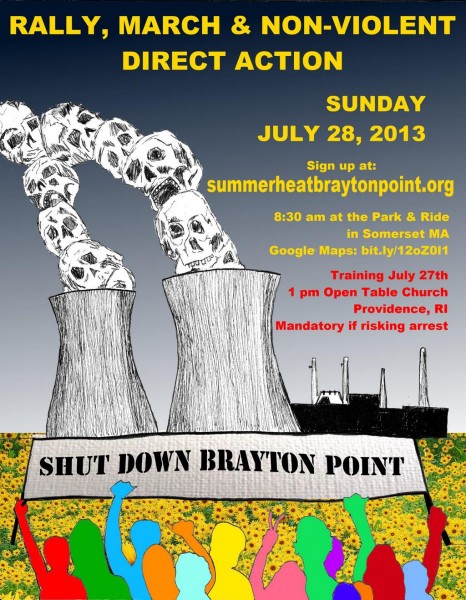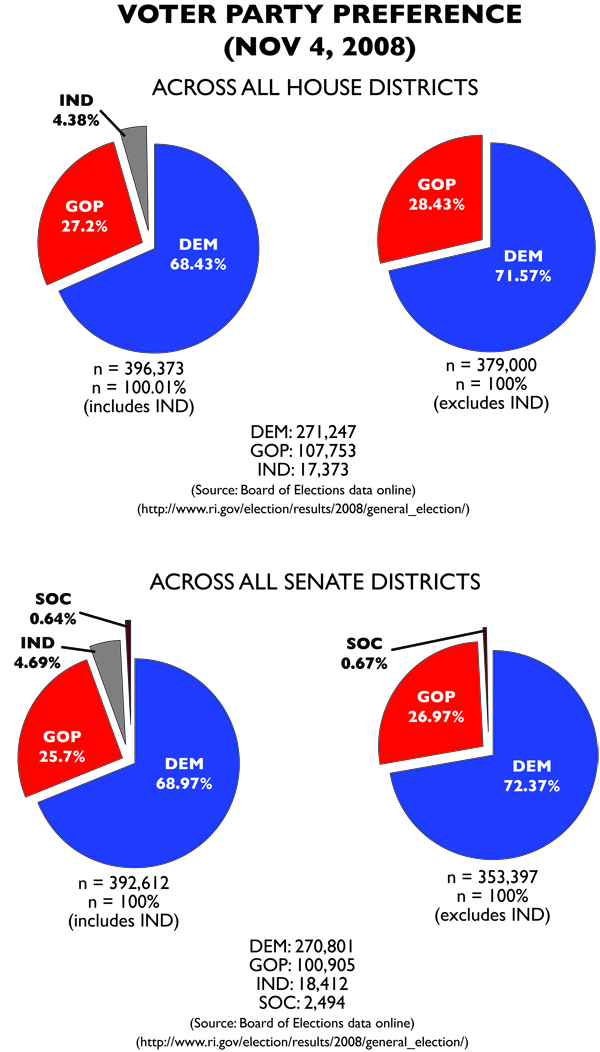The problem with this is it makes a number of assumptions. First, that we’re attracting pro-environment, pro-union, working class Americans. We’re not. Those people were born here, many back when there was an economy that supported them and that they could in turn support. That economy has been hollowed out, both by market forces and by government forces that helped destroy it.
The other thing is that we really can’t say what RI voters are like or what their policy priorities are. A third of incumbents go unchallenged every election cycle; and even in contested elections, many Rhode Islanders never even given a chance to vote for a Republican or a Democrat (it’s often a choice between party affiliated candidate and independent candidate). We know Democratic presidents win significant victories among Rhode Islanders, but then Donald Carcieri won re-election in a year that saw presidential-year level Democratic turnout and a depressed Republican turnout. I’m always hesitant to label anyone a “DINO” because it appears to me that the Democratic Party of Rhode Island has always encompassed interests as varied as the economically left, socially liberal sort to the economically right, socially conservative sort.
But let’s say that Bob’s description of Rhode Islanders is accurate. How then are we to conclude that Rhode Island’s electoral system isn’t flawed? If we have such voters, why are they electing candidates that are anti-union and anti-environment? If it’s because they support the Democratic Party candidate even when such a candidate is a “DINO”, then we have a problem: we are electing candidates who are antithetical to the party they purport to be in.
However we split the problem, we’re seeing the issue: our elections are causing trouble and aren’t representative.
Now on to solutions.
I want to be emphatic in this: nonpartisan elections are terrible. Full stop. The best time to inform voters about their choices is on the ballot. Our ballots are stripped of information, containing only directions as how to vote. We are not informed of party platforms, candidate policies, or virtually anything else beyond candidate affiliation. Candidate affiliation is the one piece of information that people can rely on. If we strip it, we lose the last piece of information beyond the candidate’s name.
A lot of “good-government” reformers instituted nonpartisan elections in the early part of the 20th Century with the specific goal of suppressing the Socialist Party in municipal elections. Why? Because a lot of people of the time understood what the Socialist Party stood for, and they would vote for its candidates, even if they knew nothing about the candidates. After Socialist Party candidates won in a few cities, the reform effort stepped up, and sold nonpartisan elections as a way to remove corruption. In reality, it tosses elections over to monied interests.
If voters can’t tell what party you belong to, they can’t tell what values you’re supposed to have. A lot of voter contact is educating voters on candidate policy. And voter contact isn’t just a free operation. It costs a lot of money (and time, which equals money). People who have a lot money have the advantage in contacting voters, meaning they get to define themselves better to voters. They also get the chance to define their opponent. Nonpartisan elections are going to exacerbate this.
If we want to elect regular people to office, we have to do two things: clear away the unequal financing of elections and provide protection for regular people to risk the run without suffering economic damage. The Citizens United decision severely restricts us on the former. The latter is difficult because we are the major roadblock. Think about healthcare for the legislators. We get really angry because one representative collects it without paying anything, even though she works for it. Let me put it this way, your job does not involve dealing with the complaints about government from roughly 13,000 people yearly. You also don’t have to spend money to keep your job, nor try to convince 13,000 people that you should keep it.
Officeholders are exceptional in Rhode Island precisely because they can hold office. Why is it this way? Because it was designed that way. Officeholders were supposed to be the well off, which is why we made sure that you needed a level of wealth before you could vote or hold office well into the 19th Century (a commenter here once suggested that our poll tax made it all the way to the last constitutional convention). Nowadays, the poor pay, the weird hours, and the cost of running an election act as a way to keep people out of office. Nonpartisan elections only increase the barriers to regular people participating in politics.
Beyond that, political parties exist for a reason. Their removal isn’t going to make them less necessary. Want evidence? Nebraska’s Unicameral legislature is nonpartisan. Here’s an article in which virtually everyone interviewed admits that the party system still exists, it isn’t overt. Parties were created to help advance agendas, and we shouldn’t pretend like they’ve totally corrupted politics. People always point to George Washington’s farewell address with its warning against factionalism. I always point out that he gave that address with his faction in power. The oppositional faction (the forerunners to the Democrats) would take control four years later.
George Mason Prof. David Schleicher look at electoral competition in big cities was really original, and really interesting (also, he says that nonpartisan races exacerbate the lack of competition). In a lot of ways, it strengthens the party system. One of the most astounding ideas to me was basically forcing the disaffiliation of local parties. Basically, you prevent anyone from running under the banner of Democrat or Republican in a local election. So instead, depending on your locale, you might the Providence Progressive Party, or the Conservative Party of East Greenwich.
I think in Rhode Island, we could go one step further: institute a ban of same party affiliation at all three levels, but allow voters to belong to a party on each level. So I might belong the the Providence Progressive Party, the Rhode Island Action Party, and the United States Democratic Party. Thus, for Providence office, I’d appear on ballot as a Progressive. For state office, I’d show up under the Action Party banner. And if sought federal office, I’d appear on the ballot as a Democrat. It would really shatter our whole understanding of politics, and would make the coattail effect on down-ticket races evaporate.
Now, that’s a radical suggestion, and I understand that. I understand that there are reason things like this don’t get passed. And there are two main forces arrayed against massive changes. One is the political establishment, and by this I mean all those who don’t want to change the system because they understand the current one. There’s a lot of people who know how to work everything just so, and big changes will mean adaptation. If you have a 20-year or more career in office, big changes are naturally going to frighten you. The question is whether we can appeal to the politician (who is supposed to make good policy) and tamp down the person (who cares about their own self).
The other thing is what I think of as institutional inertia. We hear this usually expressed as “that’s the way it’s always been.” People invent these myths about how government works, and we can’t change it or else who knows what will happen. So instead of really reorganizing government, we make little cosmetic changes, and leave the big issues still in place. Just like master lever abolition, nonpartisan elections will leave in place problems of gerrymandering, lack of voter education, the outsized influence of money, lack of competition, etc., etc.
One of my favorite movies is The Prestige. And one of my favorite lines is “man’s grasp exceeds his reach.” That applies wonderfully here. What we reach out to change in Rhode Island is far short of what we can change in Rhode Island. The beautiful thing about democracy is that it is not natural, it is not set in stone. It is entirely human-created, and entirely changeable to the needs of its citizens. States are laboratories of democracy, and we get to run experiments with democracy. Sometimes those experiments will fail. This is the nature of experimentation.
 This is why the next constitutional convention could be the most vital thing that will happen in Rhode Island in many years. We could make cosmetic changes to our democracy, change the paint, give it a bit of tune up, maybe reupholster the seats. Or we could tear it apart, see how every little bit works, how they fit together, and then rebuild it as as a completely different kind of beast. If we are truly a “lively experiment” we must not fear to experiment.
This is why the next constitutional convention could be the most vital thing that will happen in Rhode Island in many years. We could make cosmetic changes to our democracy, change the paint, give it a bit of tune up, maybe reupholster the seats. Or we could tear it apart, see how every little bit works, how they fit together, and then rebuild it as as a completely different kind of beast. If we are truly a “lively experiment” we must not fear to experiment.
I think it’s worth ending on this Thomas Paine quote and thinking about how it could apply to our own future constitutional convention: “We have every opportunity and every encouragement before us, to form the noblest purest constitution on the face of the earth. We have it in our power to begin the world over again.”
